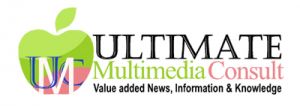In today’s increasingly interconnected world, digital security is becoming a top concern for individuals and businesses alike. With the rise of the internet and digital technology, sensitive information and personal data can be easily accessed and manipulated by cybercriminals. This is especially true in developing countries like Uganda, where digital security measures are not yet well established.
According to a report by the Uganda Communications Commission, over 60% of Ugandans now have access to the internet. However, this rapid increase in connectivity has also led to a rise in digital security threats. In fact, a recent survey found that over 60% of Ugandans have fallen victim to online fraud or cybercrime.
The 2021 Uganda Police Report revealed a concerning trend in the realm of digital security. The report showed a 3% increase in reported cases of cybercrime, with 256 cases reported during the period under review compared to 248 cases in 2020. The report also shed light on the devastating financial impact of cybercrime in Uganda, with a total loss of UGX15,949,263,000 reported. Unfortunately, only a small fraction of this amount was recovered, with only UGX7,720,000 being recovered. This highlights the urgent need for increased efforts to prevent and respond to cybercrime in Uganda.
Digital Security in Uganda: How Ultimate Media Consult (UMC) is helping Journalists protect their Sensitive Information

Pascal Ninsiima of Ultimate Media Consult, training Journalists in Mbale city on Digital safety and Security
At Ultimate Media Consult (UMC), during our Multimedia Journalism and Digital skills trainings supported by the US Mission in Uganda, we have made sure to incorporate digital safety training to journalists to help increase awareness and how people can protect themselves. This is especially important for journalists, who may be handling sensitive information and need to be able to keep it secure.
Key Threats to Digital Security in Uganda
One of the biggest digital security threats facing Ugandans is online fraud and phishing scams. These scams typically involve a cybercriminal posing as a trustworthy entity, such as a bank or government agency, and requesting sensitive information, such as passwords and credit card numbers. To avoid falling victim to these types of scams, it is important to always be vigilant when entering personal information online, to only use secure websites, and to never click on links from unknown sources.
Another major threat to digital security in Uganda is cybercrime. This can involve anything from hacking into personal or business accounts to stealing sensitive information, such as intellectual property or personal secrets. To protect against cybercrime, it is important to keep software and security systems up to date, to use strong and unique passwords, and to avoid sharing sensitive information online.

The rise of mobile technology has also created new security challenges in Uganda. With over 50% of the population using mobile devices to access the internet, it is easier for cybercriminals to steal sensitive information or take control of these devices. To protect against mobile security threats, it is important to install mobile security software, to only download apps from trusted sources, and to always lock your device when not in use.
An article published by Daily Monitor in November 2022 titled: ‘How hackers accessed Airtel Money’s systems’ revealed how hackers had successfully accessed the systems of Airtel Money and drained its central systems of over Shs8 billion in a meticulously planned operation. The successful hack of Airtel Money’s systems highlights the need for stronger security measures to protect sensitive information and personal data, as well as the importance of regular security audits and updates
Collaborative Efforts for Improved Digital Security in Uganda
The government of Uganda has recognized the importance of digital security and is taking steps to improve it. For example, the Uganda Communications Commission has introduced regulations aimed at increasing the security of mobile devices and networks.
However, much more needs to be done to fully protect citizens against digital security threats. It is crucial for individuals and businesses to stay informed about the latest security measures and best practices to keep their data safe. Additionally, the government, private sector, and civil society must work together to raise awareness about digital security and provide the necessary resources to help prevent and respond to cyber threats.
Ultimately, digital security is everyone’s responsibility, and it is up to each of us to take steps to protect ourselves and our information online. By staying informed, taking precautions, and working together, we can help ensure that the digital world remains safe and secure for everyone.
At Ultimate Media Consult, we understand the importance of digital security and strive to help journalists and other professionals stay safe and secure in the digital world. Through our multimedia journalism and digital skills training, we are committed to providing the knowledge and resources necessary to help people protect themselves and their information online.






Leave A Comment